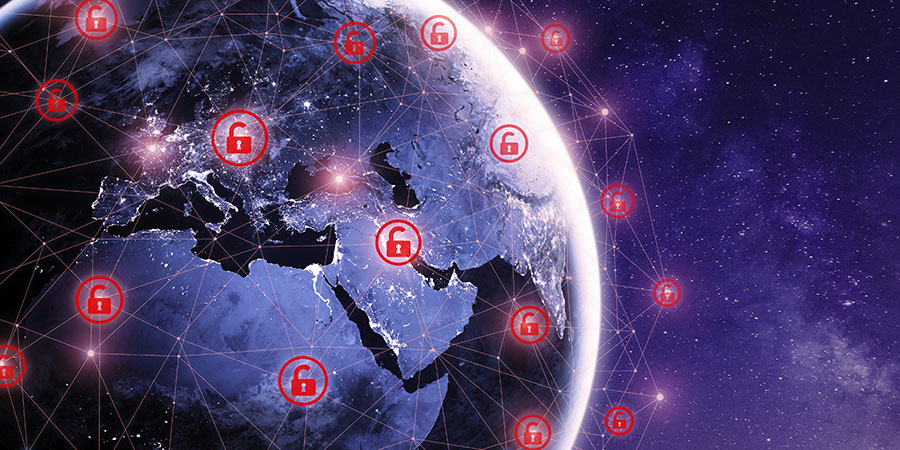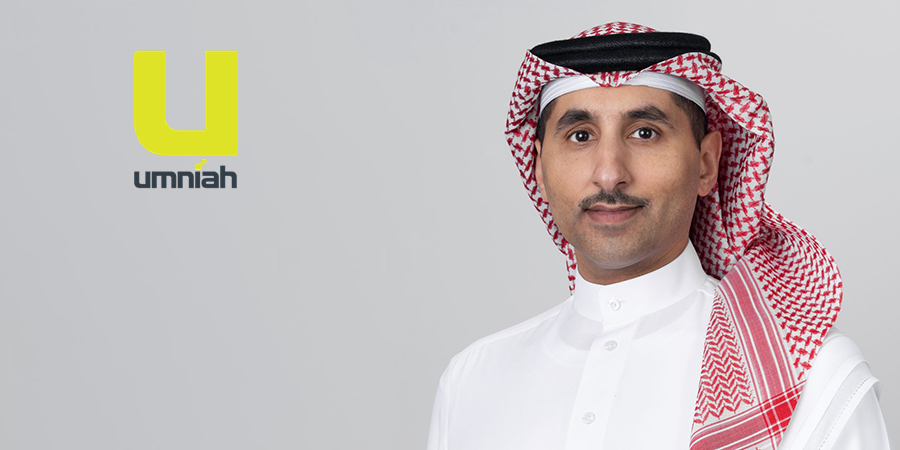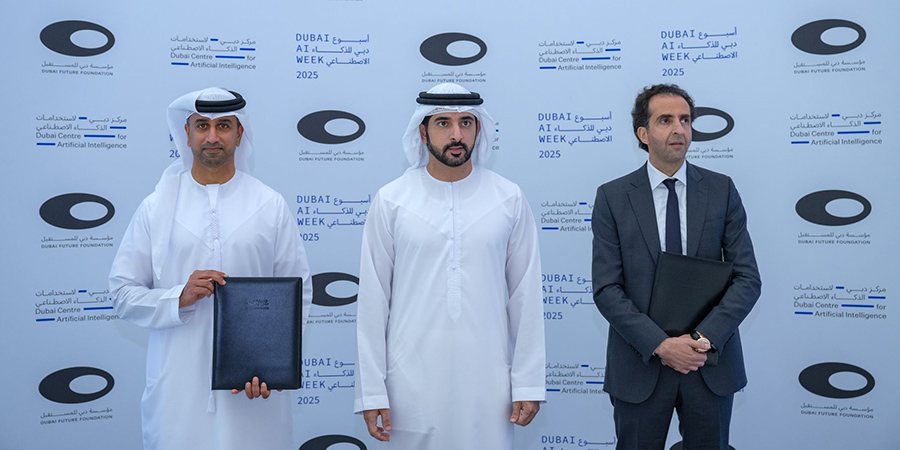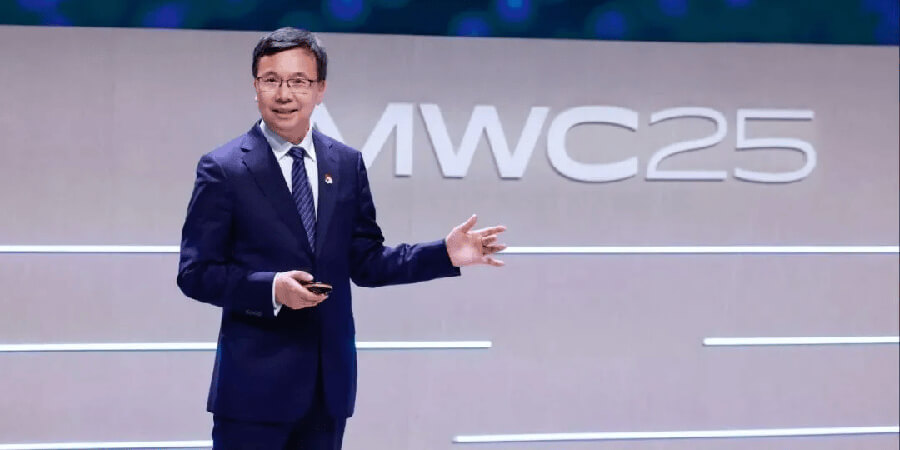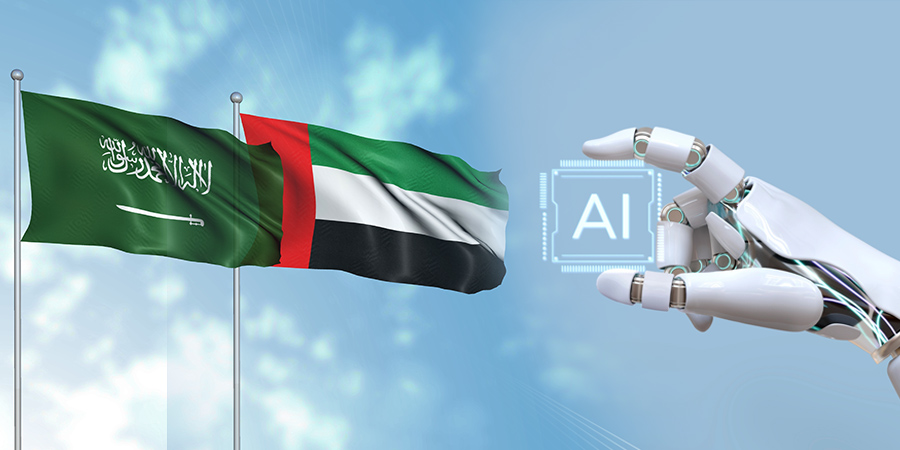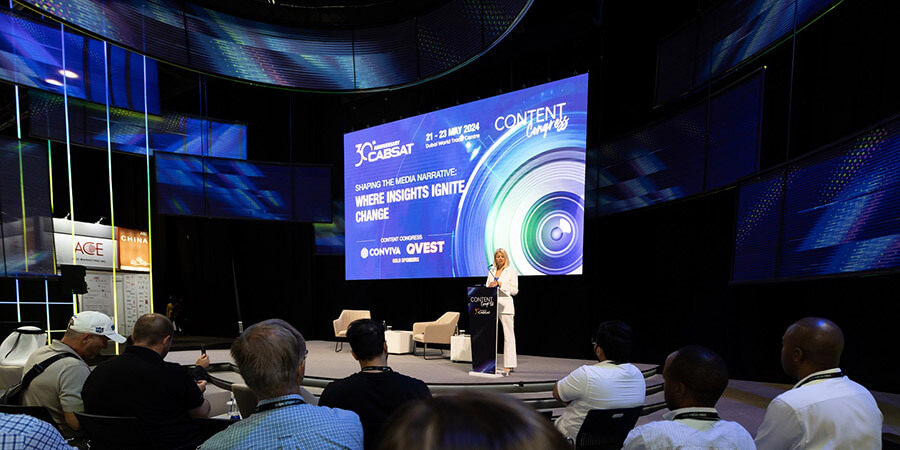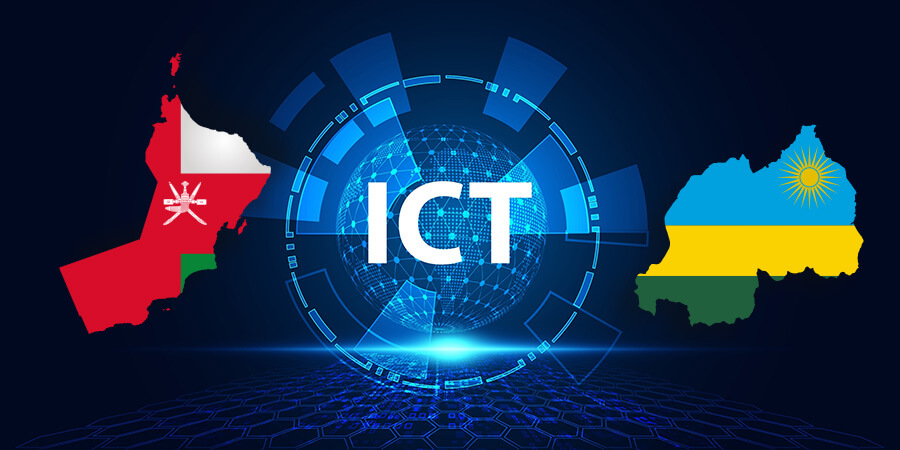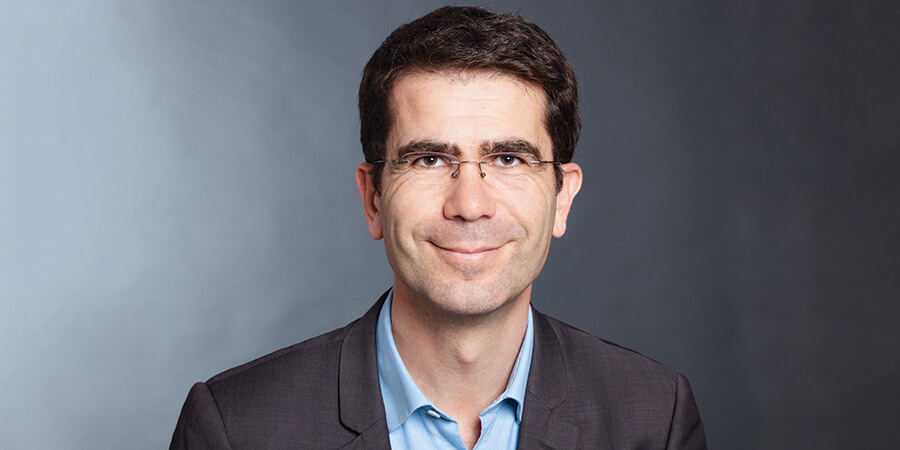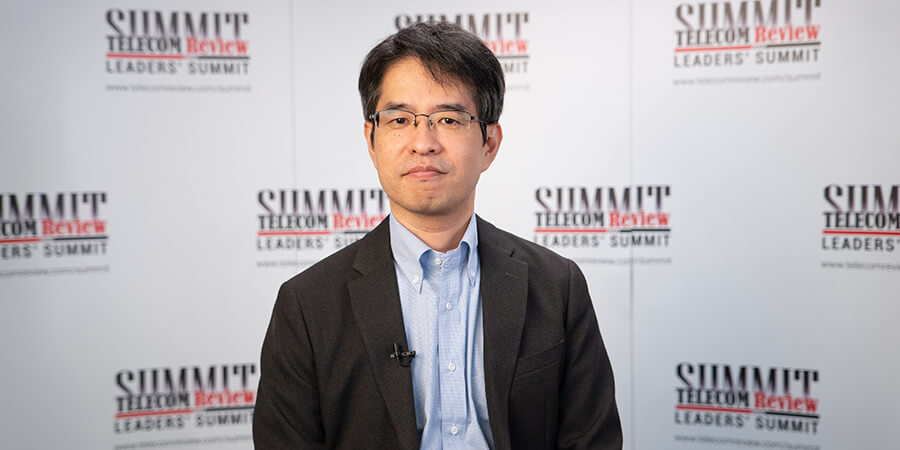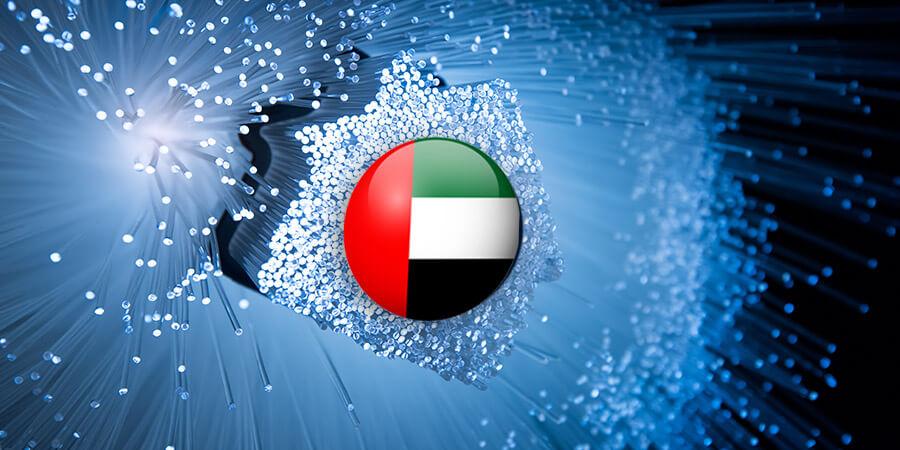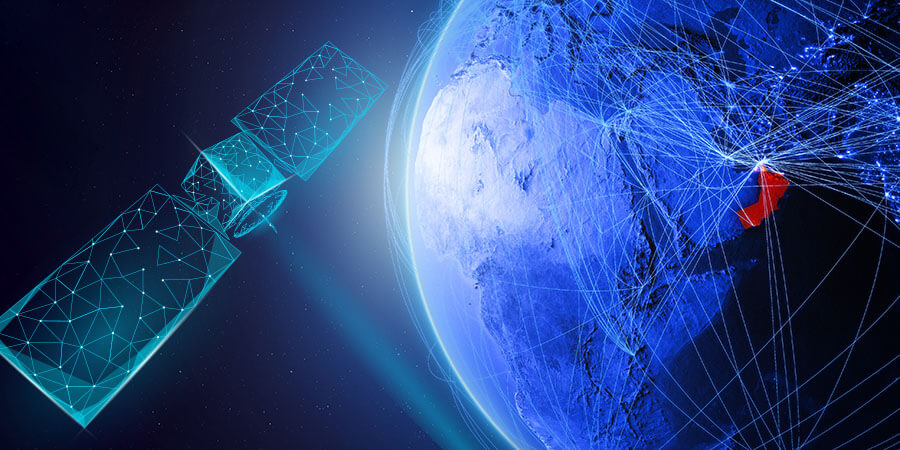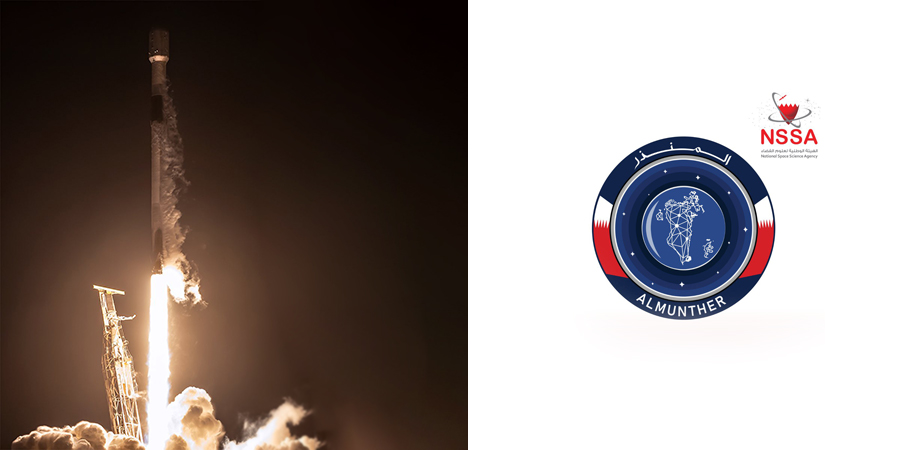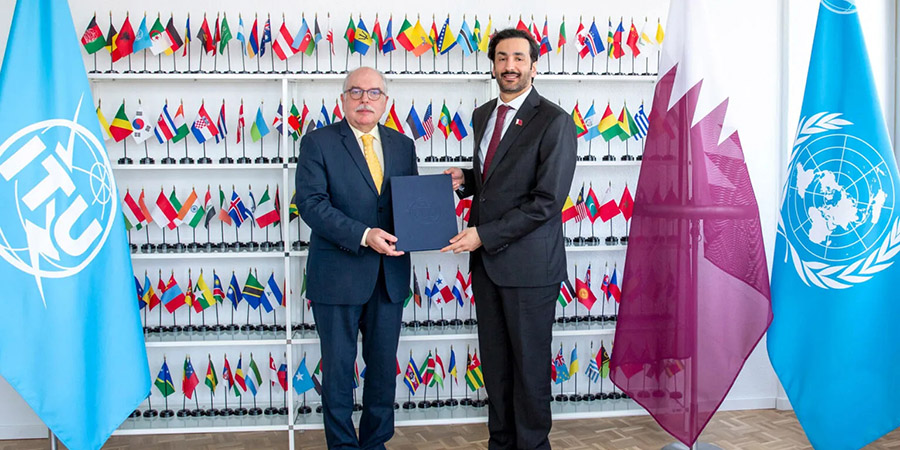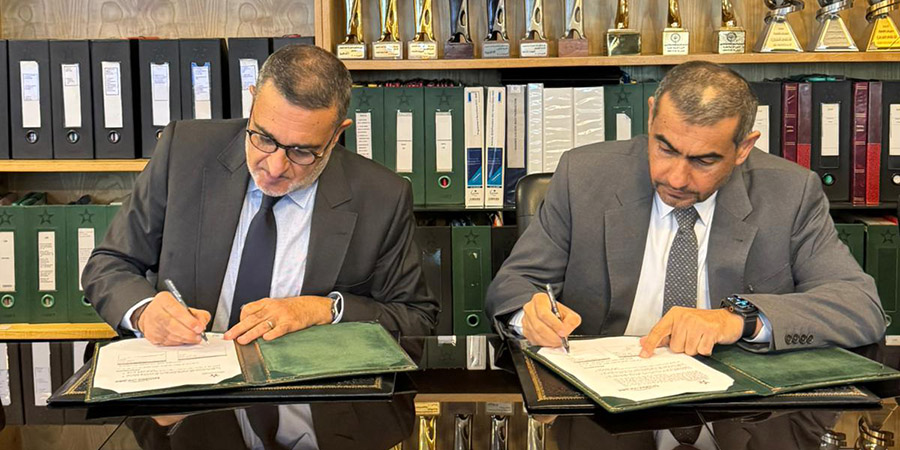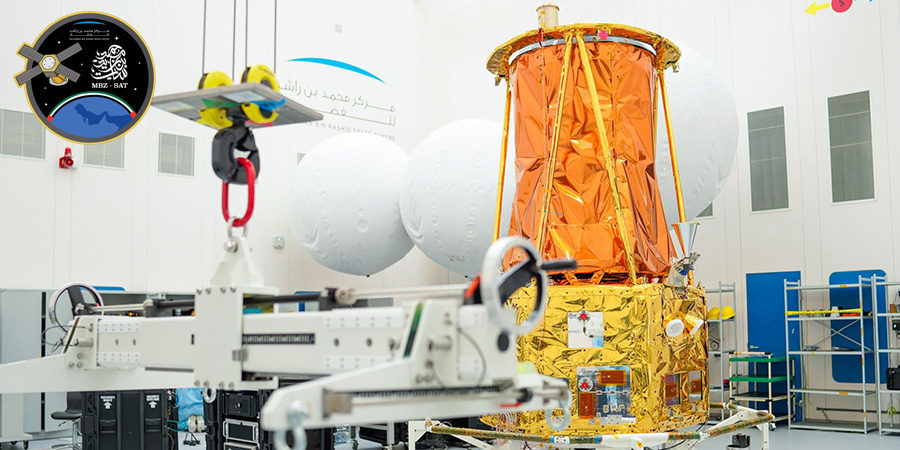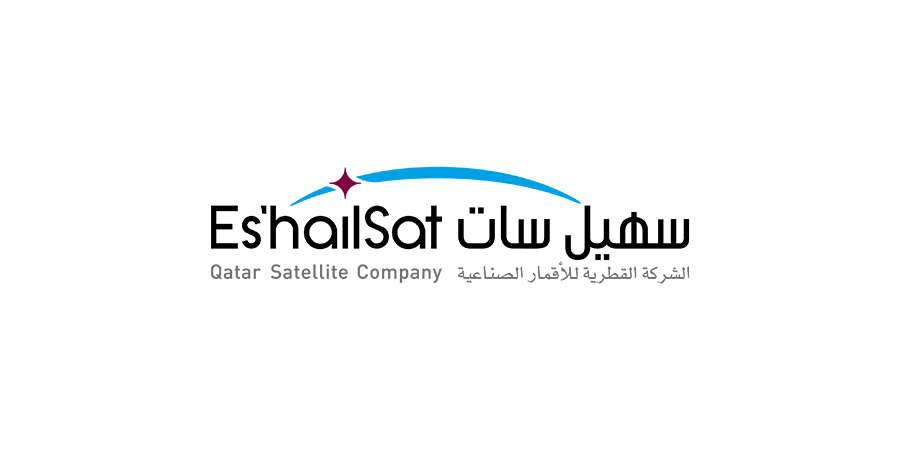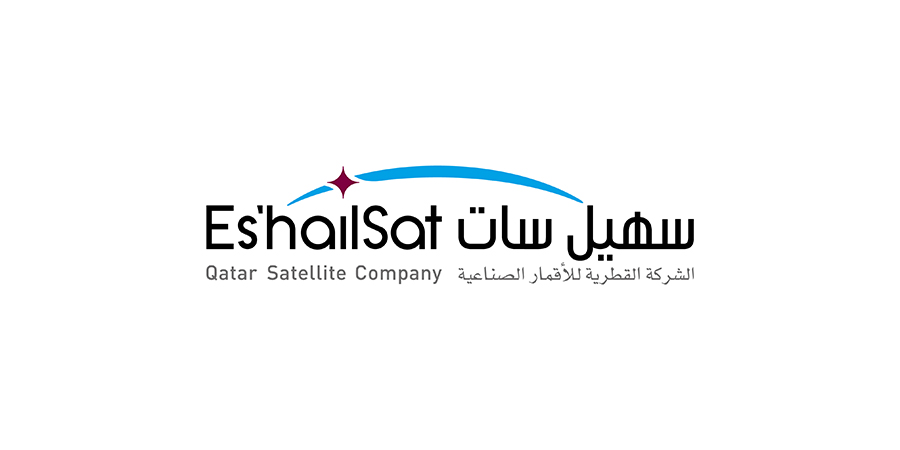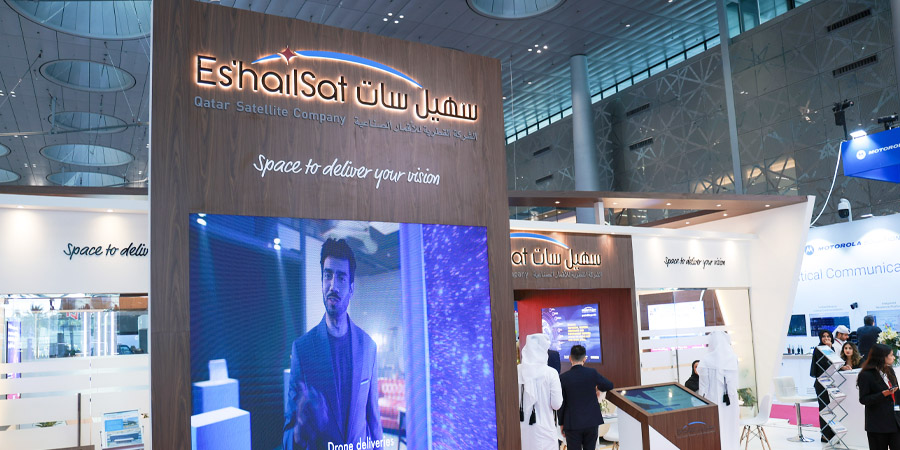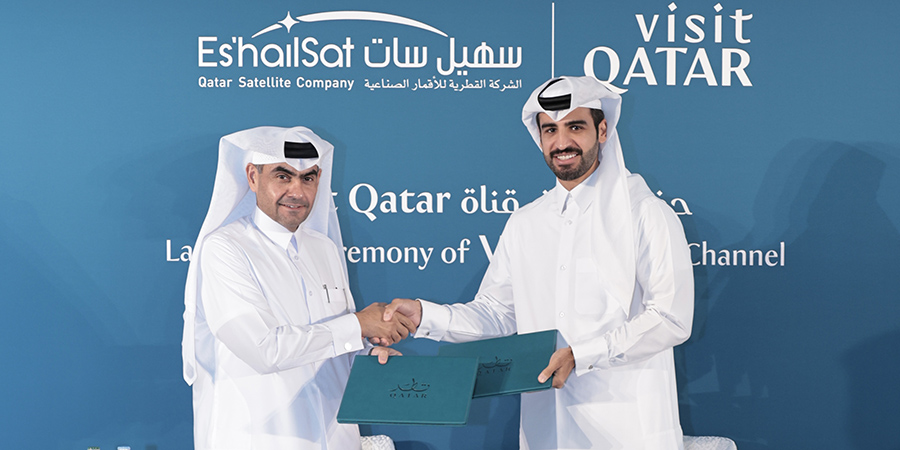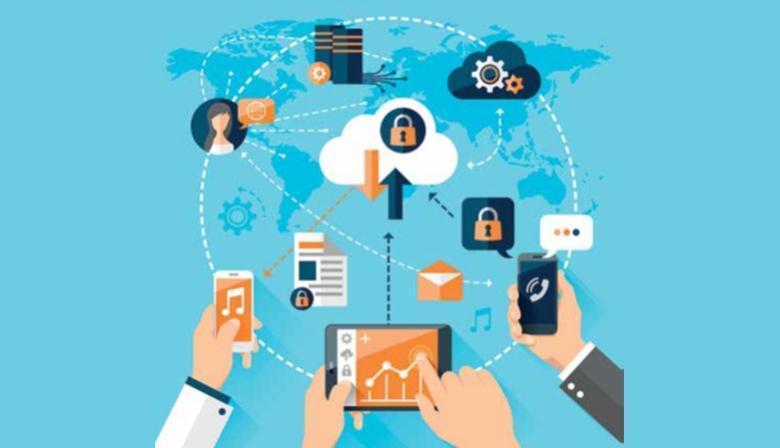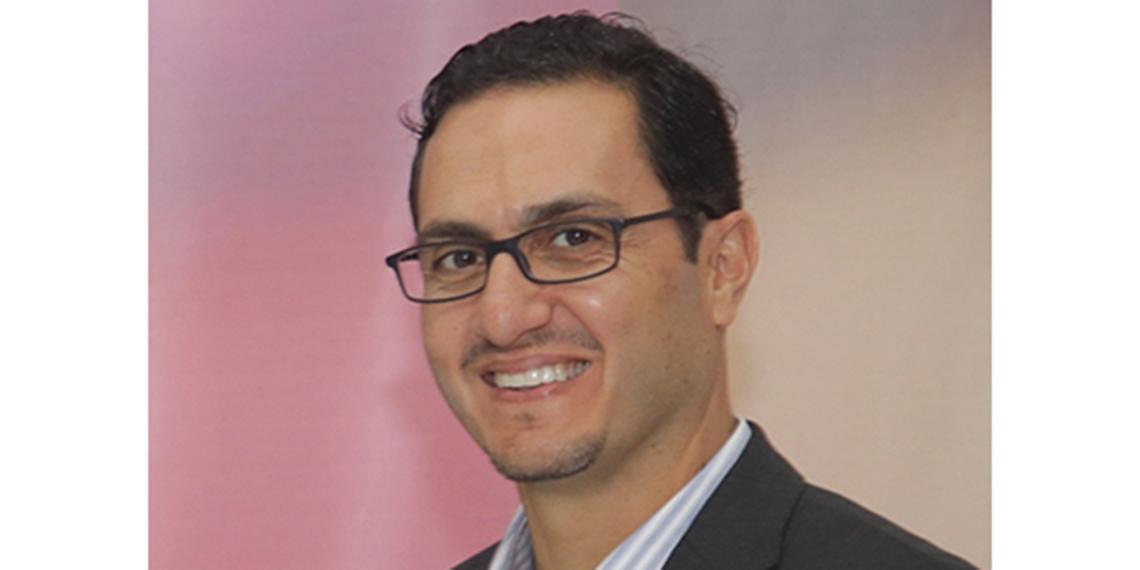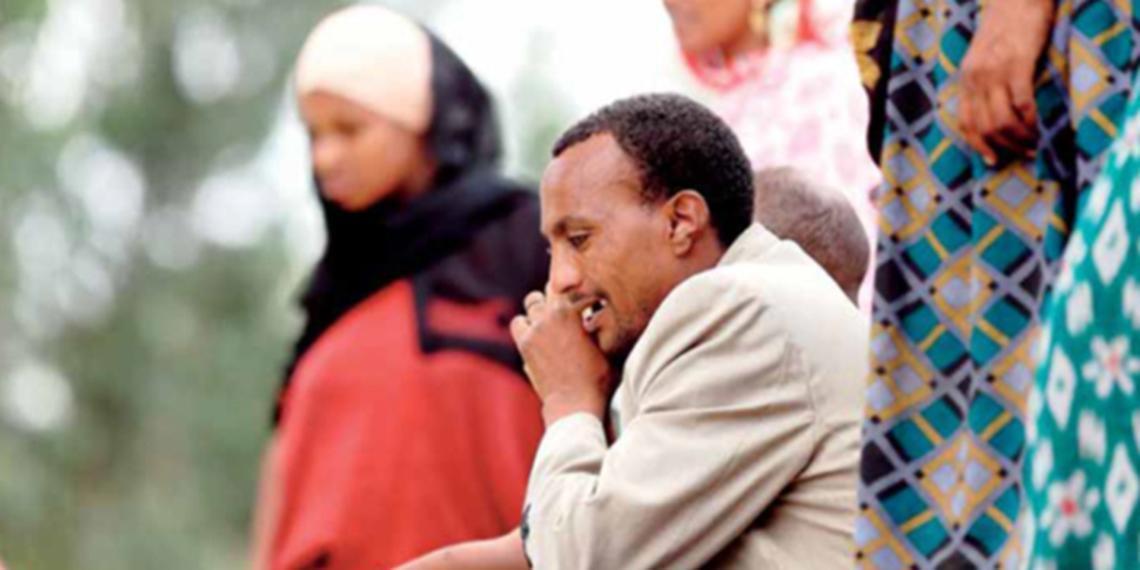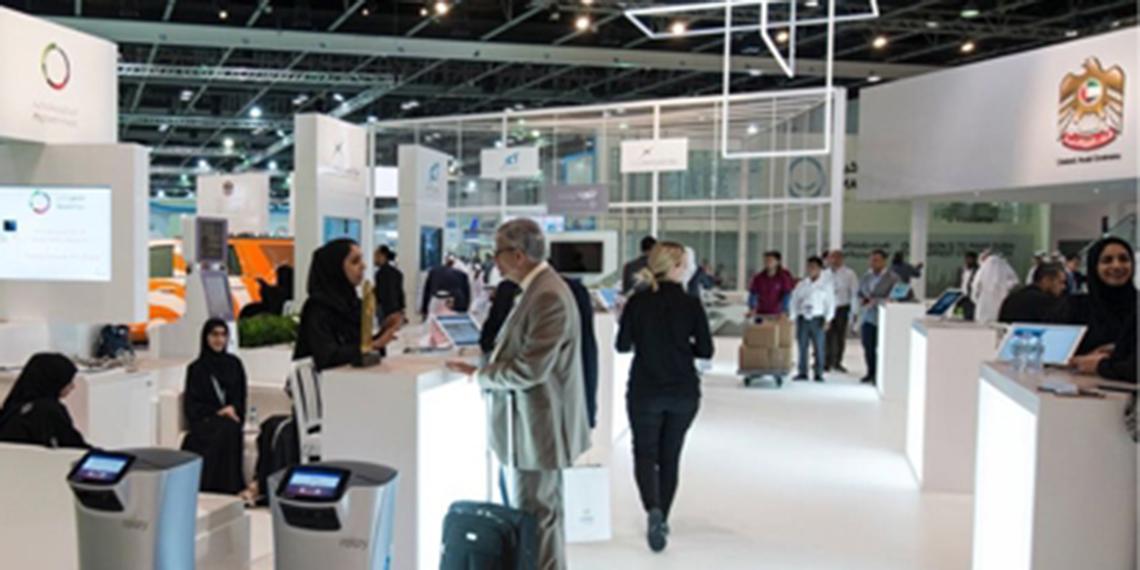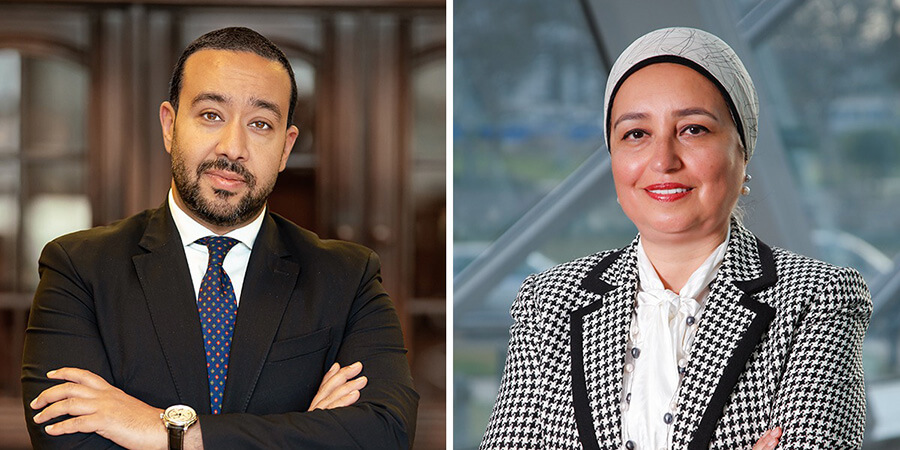As revenues from voice and data services continue to subside, cloud services offer a perfect chance for communications service providers (CSPs) to drive growth by building out new income streams. Their expertise in network infrastructure and connectivity makes the move into infrastructure-as-a-service (IaaS) a natural step for CSPs. However, the cloud market is dominated by major players such as Amazon, Microsoft and Google, so direct competition would be a huge challenge for telcos. Referring to that, where does the opportunity lie?

IN THE SPOTLIGHT
Latest News
In an exclusive interview with Telecom Review, Gilles Vaqué, President and Managing Partner at PMP Strategy, elaborated on how the firm is uniquely positioned to lead the financial services, transport, and energy sectors in addition to their core expertise in the TMT sectors (telecom, media and culture, and technology) in the Middle East and globally.
In an exclusive WinWin interview hosted by Telecom Review, du's pioneering role in the telecom industry's transformation was spotlighted. As a frontrunner in innovation, the company is harnessing the power of artificial intelligence (AI), 5G, and cutting-edge digital solutions to reshape the landscape.
In an exclusive WinWin interview hosted by Telecom Review, Sun Shiwei, Deputy General Manager of China Mobile Department of Market Operation, and George Gao, President of Huawei’s Cloud Core Network Product Line, shared their valuable insights into China Mobile’s pursuit for value-driven operations and its efforts to set a global benchmark by leveraging the power of 5G-Advanced (5G-A) and artificial intelligence (AI).
Satellite and Broadcasting
Empty Category
Alibaba Cloud embark on joint venture with YVOLV for new datacenter in Dubai
Alibaba Cloud in conjunction with YVOLV officially announced details of the launch of its new datacenter in Dubai. President of Alibaba Cloud, Simon Hu, and vice president, Sicheng Yu, were joined by the CEO of YVOLV, Fahad Alhajeri, at a press conference in which the trio outlined both their delight at the joint-venture, as well as their hopes and aspirations that the collaboration between the two companies will be a successful one.
neXgen's cloud-based, all-inclusive smart city as a service platform
neXgen Group has garnered a reputation for being one of the top smart city consultants in the region - a thought leader in the domains of smart cities and next generation technology innovation. The company has since evolved from its consultancy status and added smart city managed services through its cloud-based smart city as a service platform. Telecom Review caught up with Ghazi Atallah, neXgen Group's CEO.
53% of the world's population will still be offline by the end of 2016, says ITU
In its recent 'State of Broadband 2016' report, the United Nations International Telecommunications Union (ITU) says the increasing divide between the connected world and the un-connected world is worrying. According to the report, more than half the world's population does not use the internet because of high broadband costs and inaccessibility. The report further touches on the fact that 3.9 billion people do not have home or mobile internet access, and that the problem is most prominent among the groups including ""females, elderly, less educated, lower income and rural (populations).""
In its report, ITU indicates that it's vital to bring unconnected people online to ensure everyone has an equal opportunity to participate in the digital economy and access all the information opportunities that the internet can provide in the workforce, education, etc. Increased connectivity also plays into achieving the UN's Sustainable Development Goals (SDGs) by 2020, as the internet has the power to enrich people's lives. In fact, the ITU's 'Connect 2020' targets call for 60% of the world's population to be online by 2020, which is equivalent to bringing 1.2 billion people online over the next four years, according to the report.
One of the problems that have been raised by ITU in seeing its goals reached is that fixed broadband access is too expensive. Even though the cost of it has dropped over the last decade, it remains ""clearly unaffordable"" in many of the world's poorest countries, says ITU. Stats show that in 2008, the average price for a basic fixed broadband connection around the world was $80 per month, which decreased to $25 a month a year later. Progress is being made, but in poorer countries, a fixed broadband monthly package with just one gigabyte of data (roughly the amount needed to download an average movie) still costs more than half of an average annual salary.
A solution to expensive broadband, according to the report, is mobile internet access. Mobile broadband networks cover about 84% of the world's population. But the main barrier facing extensive use of mobile broadband is the expensive cost of handsets, as opposed to the price of a monthly subscription package. ""In 2016, people no longer go online, they are online,"" says the report. ""Yet many people are still not using the internet, and many users do not fully benefit from its potential.""
3.9 billion people offline is a large number, but those people are considerably concentrated in certain areas, says the report. The United States features in the top 20 countries with the largest offline population at #15. Overall, the top 20 countries on the list account for around 75% of the total global offline population. The top three countries include India, China and Indonesia, which account for 46% of the offline population in the world; while Pakistan, Bangladesh and Nigeria add to the list, collectively contributing to 55% of the world's offline population.
""Interestingly, two of the top three countries for the total numbers of people offline are also the top countries for the total number of people online,"" says the report. ""With an estimated 277 million internet users, India has now overtaken the US to become the world's second largest internet marker, second only to China.""
In order to increase digital access globally, the UN agency says it needs better data about who is being shut out of the information technology world. In the report it explains, ""A data revolution is needed to better understand who uses the internet, where and how."" Addressing the problems with the data set that has been predominate for years, ITU highlighted that mobile phone subscriptions - long cited as a connectivity indicator - no longer reliably reflected actual mobile phone use.
While there are nearly as many mobile subscriptions in the world as there are people, in some regions, up to 40% of people do not own or use a mobile phone, according to the report, suggesting the huge number of people with multiple subscriptions has skewed the data. In fact, Ericsson's November 2016 Mobility Report says the number of mobile subscriptions exceeds the population in many countries, ""which is largely due to inactive subscriptions, multiple device ownership or optimization of subscriptions for different types of calls.""
ITU forecasts that the total number of mobile broadband and subscriptions will reach 3.6 billion by the end of 2016, while almost half of all mobile subscriptions are already broadband-enabled. The difference between mobile broadband adoptions in developed vs. developing countries is highlighted in the report: the technology is popular in developed nations because of its convenience, whereas in developing nations, ""chronic lack of fixed telecommunications infrastructure makes mobile more a platform of necessity, rather than choice.""
Tech giants Facebook and Google have made moves to bridge connectivity division by using satellite and drone technology. Internet access in Africa is limited by a lower penetration rate when compared to the rest of the world. Internet penetration was only 28.6 percent in 2015 compared to the world average of 46.4 percent, according to Internet World Stats. In an effort to expand connectivity in Africa, Facebook partnered with French satellite company Eutelsat on a new initiative that will leverage satellite technologies to get more Africans online.
Under a multi-year agreement with Spacecom, the two companies will utilize the entire broadband payload on the future AMOS-6 satellite and will build a dedicated system comprising satellite capacity, gateways and terminals. In providing reach to large parts of sub-Saharan Africa, Eutelsat and Facebook will each be equipped to pursue their ambition to accelerate data connectivity for the many users deprived of the economic and social benefits of the internet. This initiative will be followed by a Eutelsat standalone satellite to be launched in 2019 that will enable Eutelsat to broaden its African footprint for broadband services.
Scheduled for start of service in 2017, the Ka-band payload on the AMOS-6 geostationary satellite is configured with high gain spot beams covering large parts of West, East and Southern Africa. The capacity is optimized for community and direct-to-user internet access using affordable, off-the-shelf customer equipment.
According to the terms of the agreement, the capacity will be shared between Eutelsat and Facebook. Using state-of-the-art satellite technology, Eutelsat and Facebook will each deploy internet services designed to relieve pent-up demand for connectivity from the many users in Africa beyond range of fixed and mobile terrestrial networks.
Moreover, Facebook is building solar-powered drones which will fly for months at a time above remote regions, beaming down an internet connection. The project began when Facebook purchased a small British business called Ascenta, which specializes in solar-powered drones. Ascenta's owner, Andy Cox, is the engineer running what has been dubbed 'Project Aquila'.
A similar project by Google, called 'Project Loon', uses high altitude balloons placed in the stratosphere at an altitude of about 18km to create an aerial wireless network with up to 4G-LTE speeds. The project aims to connect people to the internet in the same remote regions that Project Aquila is targeting. A special internet antenna is attached to a building which connects to the balloon above. The signal travels through the balloon network from balloon to balloon, then to a ground-based station connected to an internet service provider (ISP), then onto the global internet.
Telecommunications Regulatory Authority displays 'Erteqaa' initiative for telecoms service centers in the UAE during GITEX 2016
The Telecommunications Regulatory Authority (TRA) has featured the 'Erteqaa’ initiative during its participation at GITEX 2016 held from October 16 to 20, 2016 at the Dubai World Trade Center. The initiative aims to improve the telecom service centers in the UAE through a customer survey to help identify that services that increase their satisfaction in all telecom operators’ service centers across the UAE.



